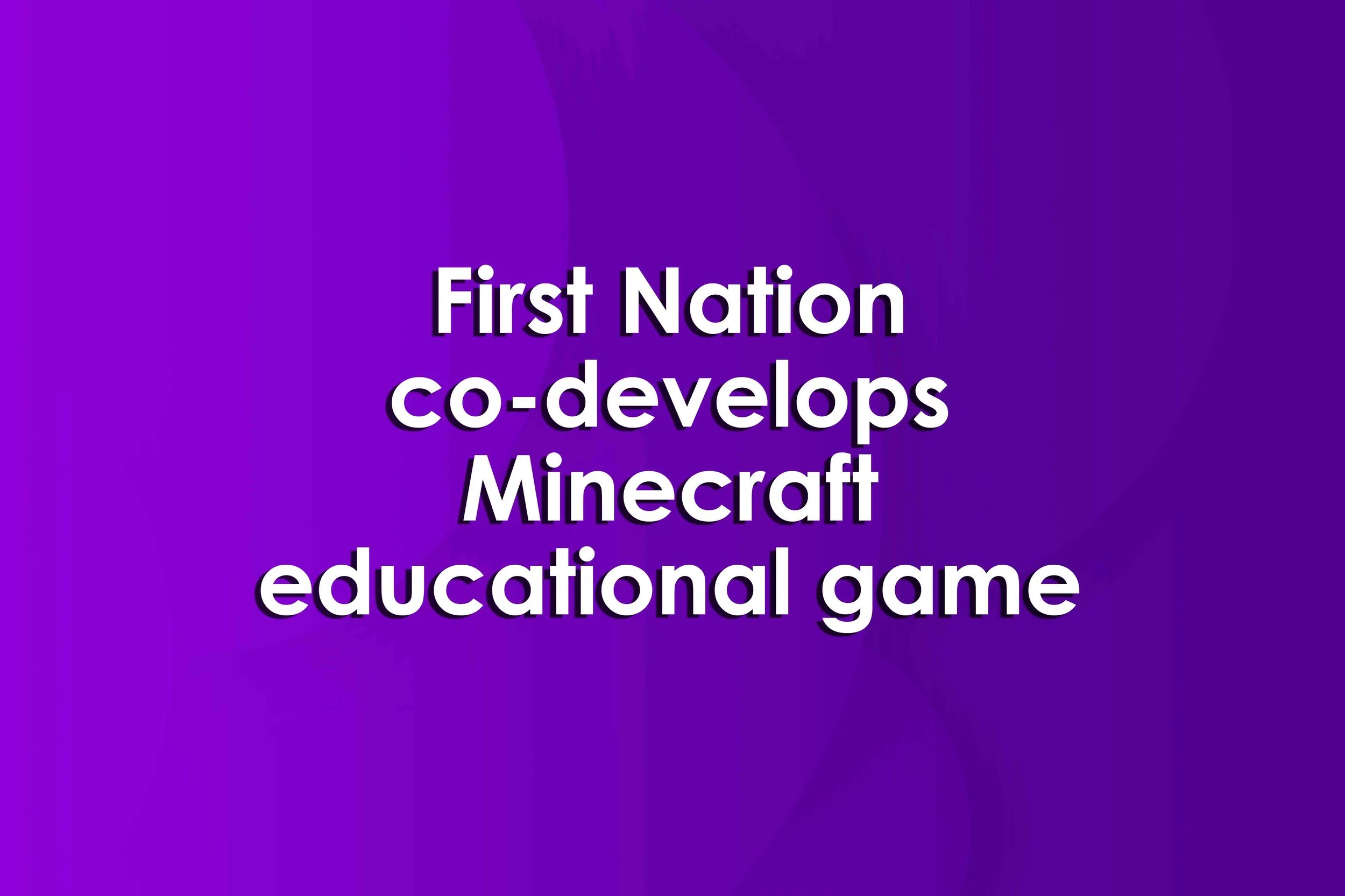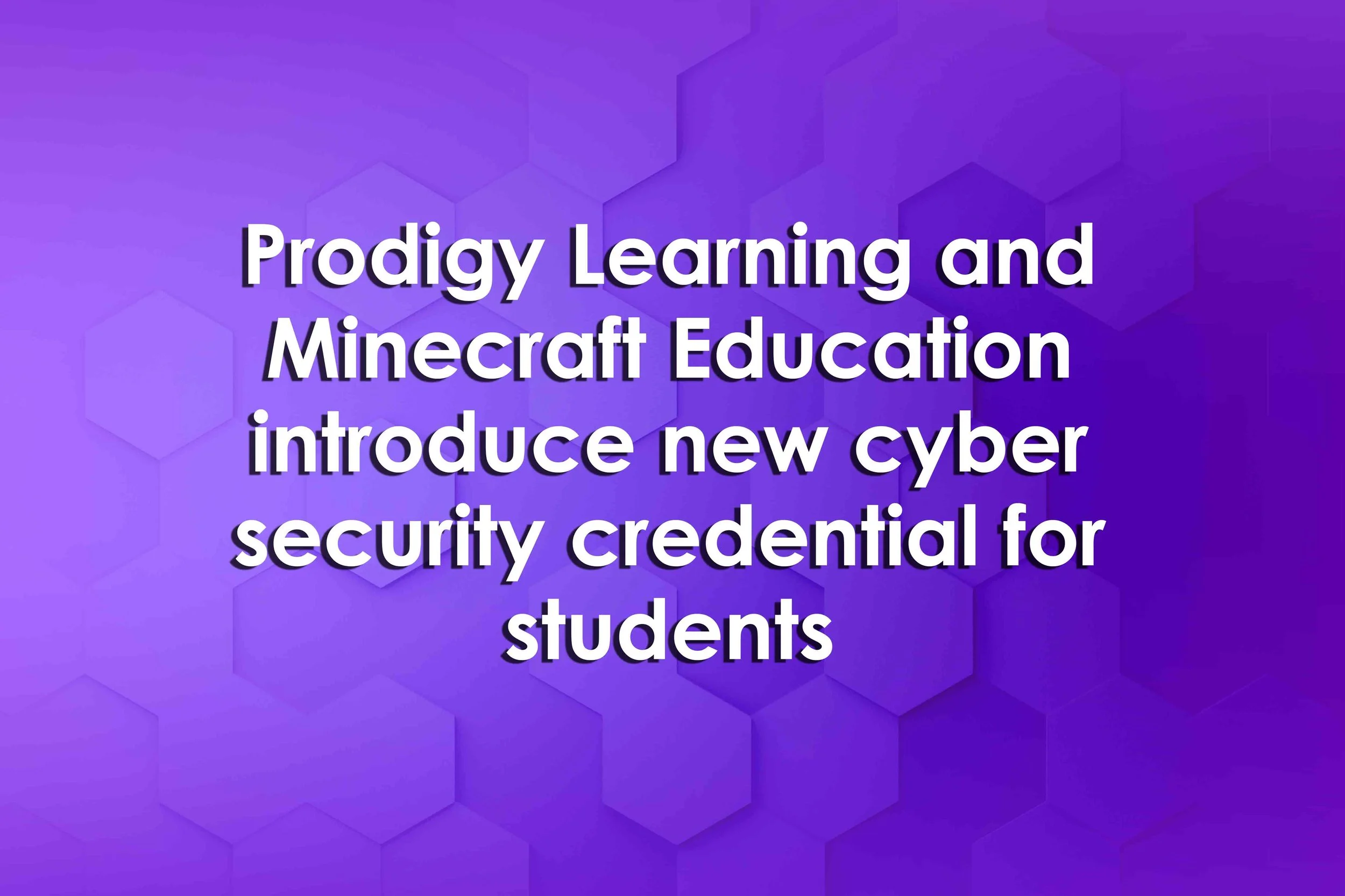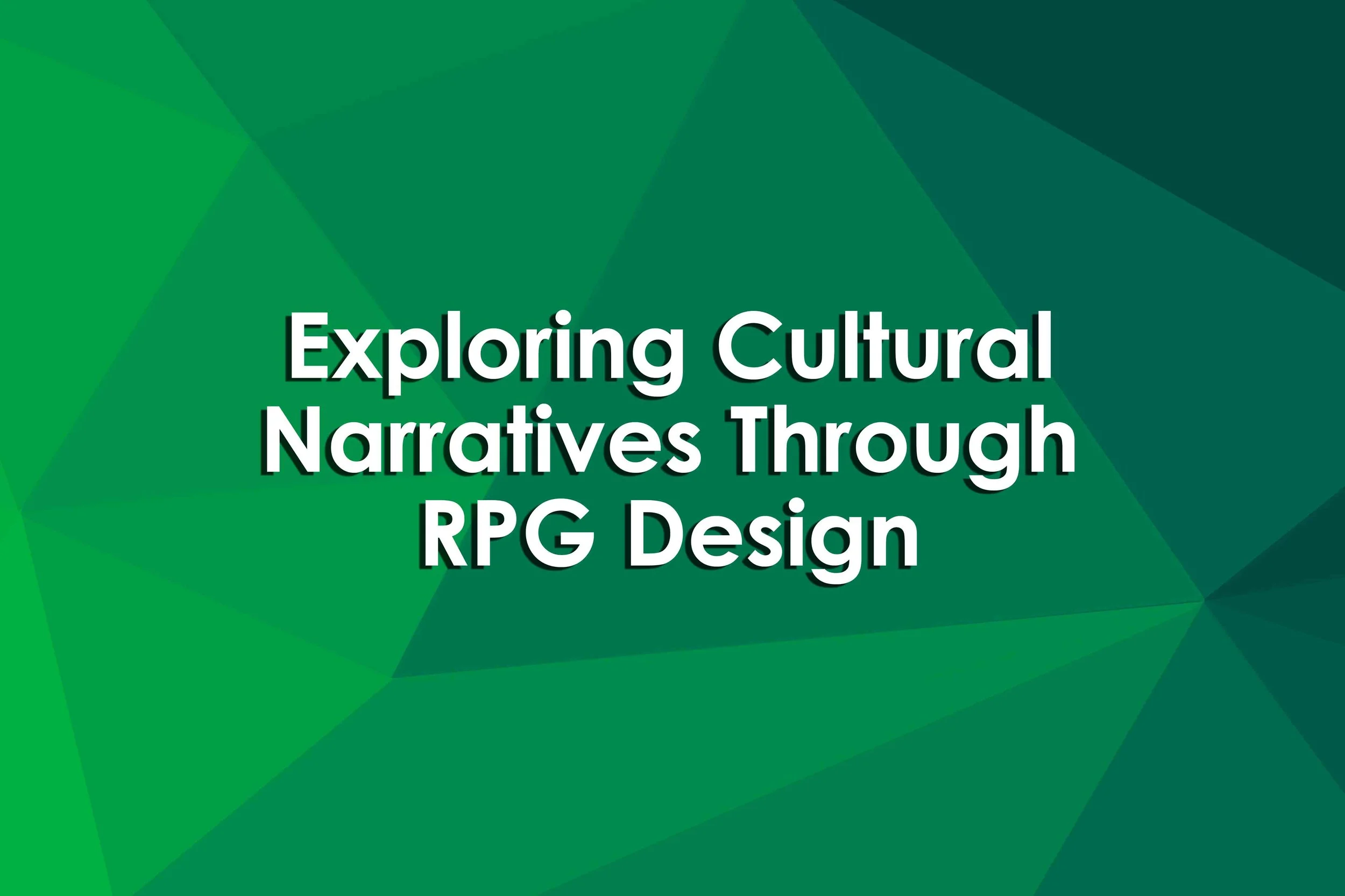The Mind Blown League, a play-based learning game, aims to boost eco-awareness and education among primary school learners. Recently, 16 students from Ekuthuleni Primary School, KwaMashu, participated, engaging in a card game that teaches science, technology, and environmental facts through a “Myth or Fact” format.
Read MoreBloodvein First Nation, in collaboration with Logics Academy, has developed a special edition of Minecraft Education to teach students about land stewardship and the Anishinaabe way of life.
Read MoreProdigy Learning, in partnership with Minecraft Education, has launched the ‘Cyber in Minecraft’ credential programme, aimed at teaching cybersecurity skills to students. The program, the first release from their collaboration, uses Minecraft to engage students in learning digital citizenship, networking, and security.
Read MoreAt the Serious Play conference held at U of T Mississauga, over 300 scholars explored the use of games in education. One highlight was “The Cutie,” an augmented reality game developed at Yale School of Medicine to teach ICU visitors how to prevent germ spread.
Read MoreA study by Dr. Leonard Annetta at East Carolina University found that Plasma Games' Sci-Ops: Global Defense video game significantly boosted student learning, motivation, and confidence in chemistry.
Read MoreA systematic review and meta-analysis published in JAMA Pediatrics suggests that gamified digital mental health interventions may effectively treat children and adolescents with depression and ADHD.
Read MoreIn the early 2010s, while working on Lineage II, I noticed a troubling trend in video games: male characters were often the heroes, while female characters were typically sexualized and designed to be rescued. This raised questions about how developers viewed women and their responsibility in shaping digital worlds.
Read MorePlaying video games during childhood may offer benefits that extend into adulthood, including higher salaries and valuable skills. A study by Prodigy Education found that adults who gamed as children earn an average of $5,451 more annually than non-gamers, with FIFA players earning the highest salaries.
Read MoreA preprint study suggests that playing video games enhances cognitive abilities, such as memory, attention, and problem-solving, but does not affect mental health. In contrast, exercise (150+ minutes per week) improves mental health, reducing symptoms of depression and anxiety, but does not impact cognitive ability.
Read MoreACM Studio at UCLA is a student-run organization focused on game development, offering resources and programs for all skill levels. The club hosts classes, guest speakers, workshops, and social events, such as game jams and a two-quarter program where students design their own games.
Read MoreSixteen pupils from Ekuthuleni Primary School in Durban are among 5,000 students across 100 eThekwini schools participating in the MindBlown game, a play-based learning tool. The game, added to the Domino Foundation's Life Skills program, encourages reading, teamwork, and learning science and technology facts.
Read MoreHeritage gamification, a growing trend in tourism, combines cultural education and technology to attract visitors, especially younger generations. In Vietnam, games like those at Đường Lâm Village and the Hùng Vương Museum engage tourists by immersing them in interactive, educational experiences tied to local heritage.
Read MoreDanii Wills, a 32-year-old mother, found solace in "cosy gaming"—a genre that emphasizes relaxing tasks, community-building, and creative control, such as Animal Crossing and Stardew Valley. These games have helped her cope with anxiety, depression, and ADHD, providing a sense of community through online interactions.
Read MoreUnion Minister of State for Education Sukanta Majumdar highlighted the benefits of online games and their potential to enhance education. Speaking at the Indian Gaming Convention in New Delhi, he emphasized how gamification can make learning more engaging, accessible, and effective by fostering critical thinking, problem-solving, and creativity.
Read MoreDr. Susannah Emery, a researcher at the University of South Australia, is developing a video game called Life Resounding to provide insight into neurodivergence, such as ADHD, autism, and dyslexia.
Read MoreAt K-State’s College of Education, the Game Lab explores the educational potential of games. Open three days a week, it allows students, faculty, and community members to play games like Dungeons & Dragons and Magic: The Gathering while researchers investigate how games can enhance learning.
Read MoreA survey by Prodigy Education reveals that people who played video games as children are more likely to have received recent promotions, earning $5,451 more annually. Video games, once associated with negative traits, are now recognized for enhancing strategic thinking, problem-solving, and creativity.
Read MoreA new educational video game developed by Bloodvein First Nation and Logics Academy immerses students in the Anishinaabe way of life, featuring sled dog rides and moose hunting while exploring land stewardship.
Read MoreJillian Fader, a wildlife ecology major at the University of Delaware, is exploring how board games can enhance chemistry students’ understanding of quantum numbers, a key concept in chemistry.
Read MoreThe 4th Bootcamp #Pascualchallenge: Social Fictions and Role-Playing Games allowed students to apply theoretical knowledge in a hands-on, challenge-based environment. By designing a role-playing game based on Colombian mythology, participants bridged academic learning with real-world application, focusing on narrative creation, game mechanics, and design.
Read More




















